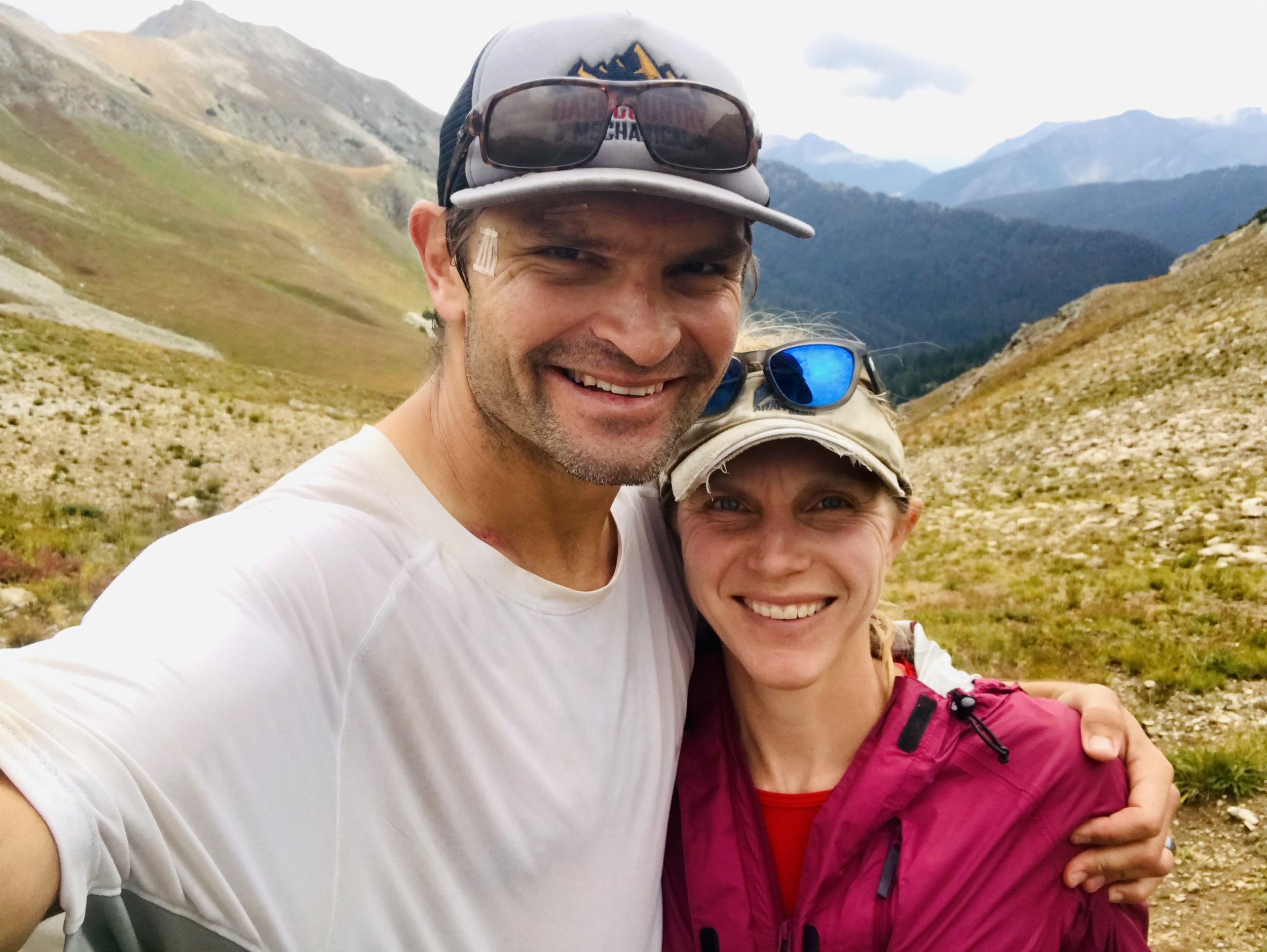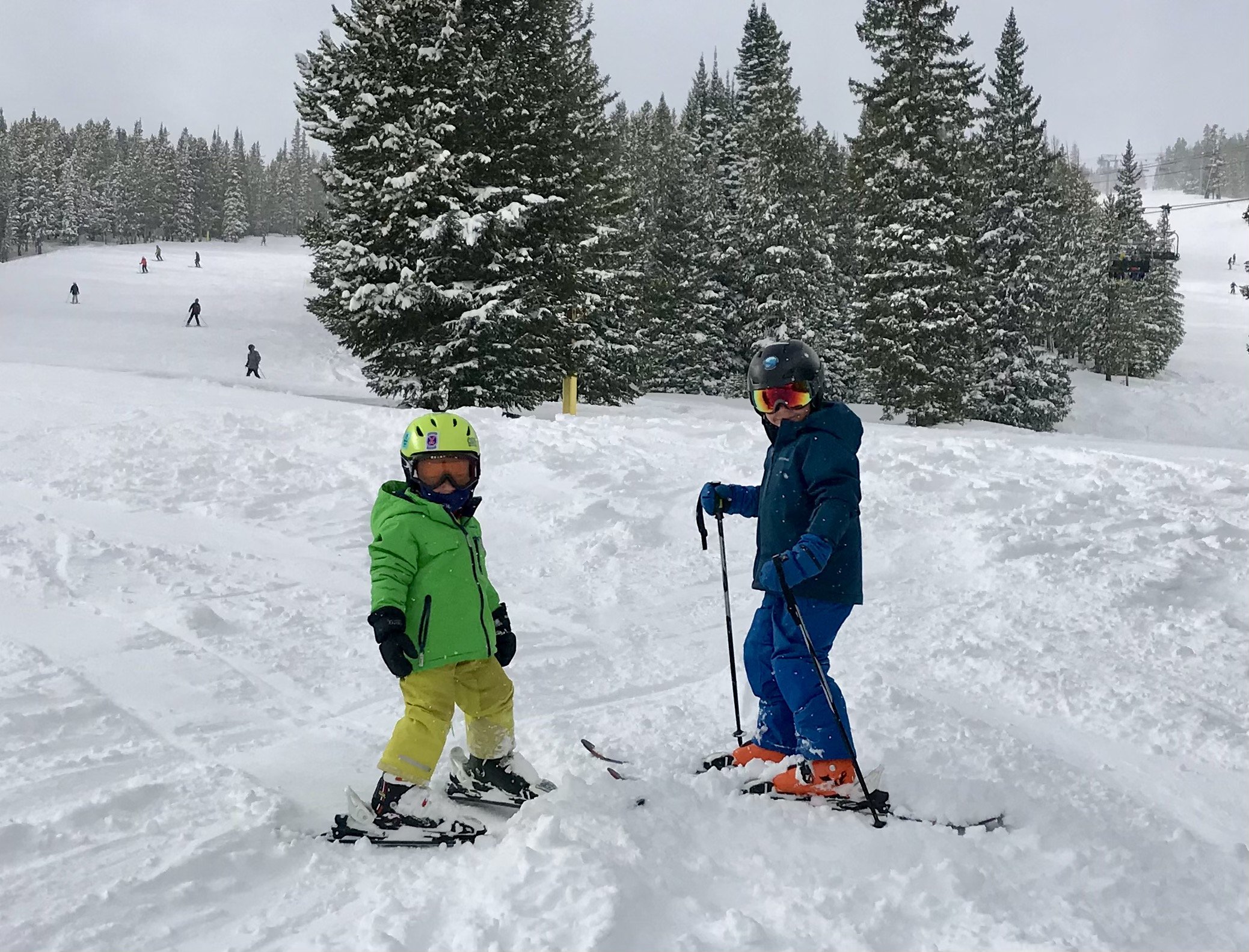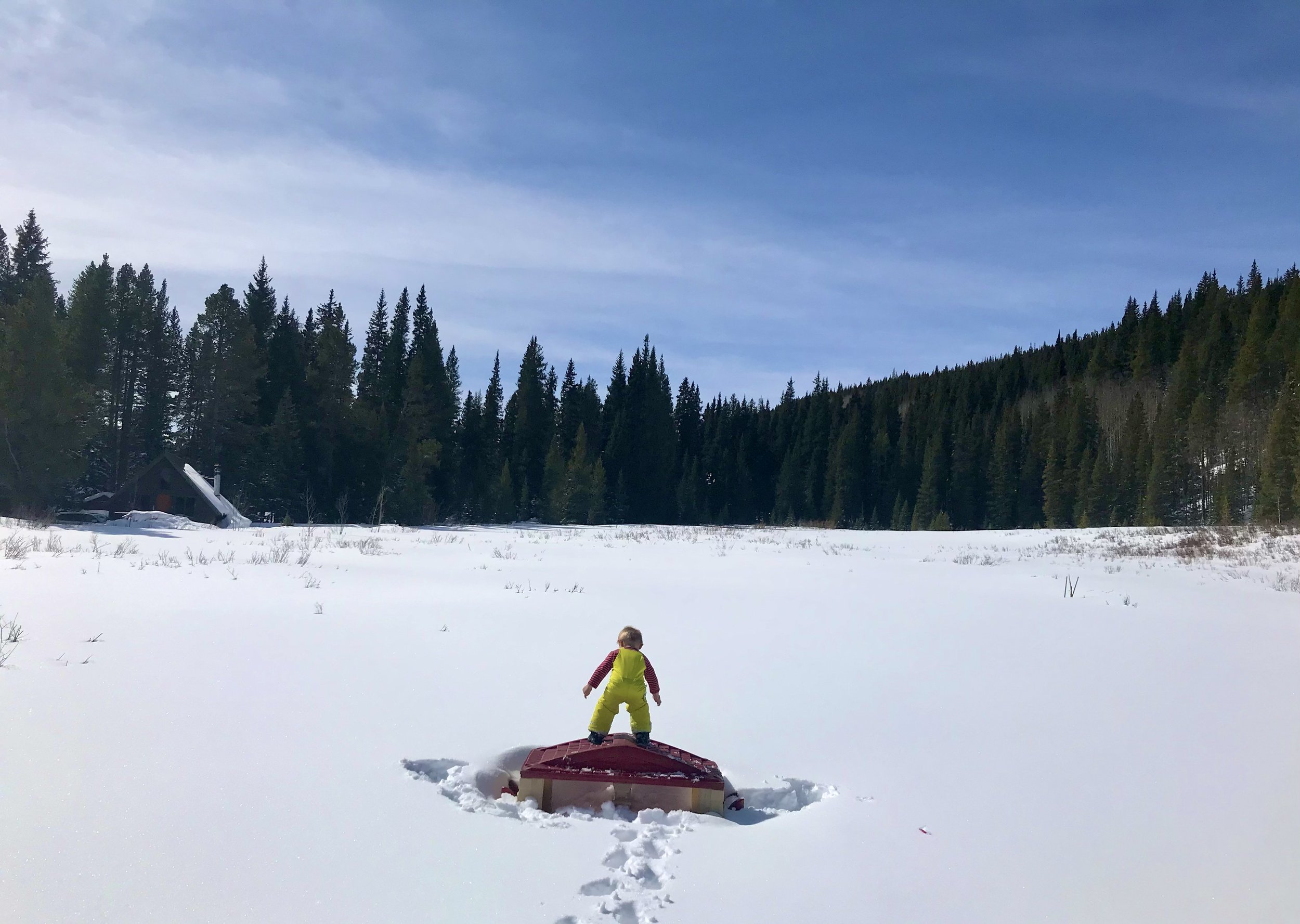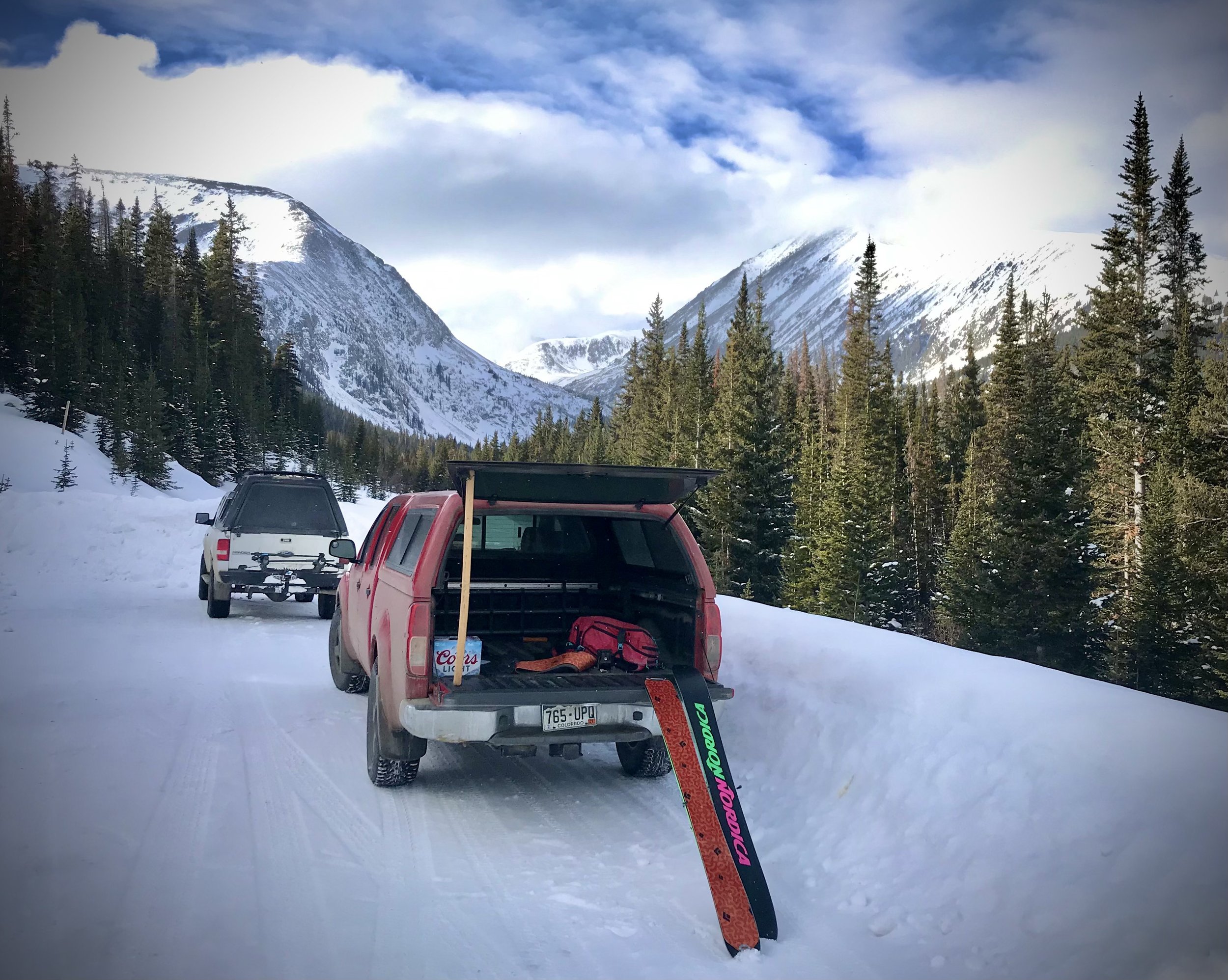
An outdoor adventure as a family is simultaneously priceless, maddening, fulfilling, gross.”
Devon O’Neil
Outdoor Dad Devon O’Neil’s Best Advice for Preparing for a Family Adventures Is, In a Word, Planning
Today, Devon O’Neil is in many ways a typical family guy. He’s got a wife, two kids, a house, work, hobbies, and all that stuff. What separates O’Neil from most American dads are three things.
First, said hobbies are almost always outdoor- and family-oriented. Second, the O’Neil home, located north of Breckenridge, CO near the Blue River is physically rather separated from other folks, and that’s in terms of distance and elevation. Third, Devon O’Neil’s life journey up to the point of partner, kids, and home in the mountains was anything but typical.
During a recent Dad Gear Review interview, this writer (Outside, Backcountry, ESPN) hiker, camper, and general outdoor enthusiast took things back to the start of his days as a fan of being outside and on the go, days that started when he could number his years on one hand.
“I have a twin brother, and we were born in Norwalk, Connecticut and lived there for the first five years of our life. Then our mom, who raised us and commuted to the city wanted out of that whole life. She had been sailing in the Virgin Islands before, so she decided to move us down there. She had a boyfriend at the time, who was on board as well. We bought a sailboat and lived on that for the first two years that we were down there. And then we moved to shore. So I grew up down there. I went to college in Vermont. And then lived in DC, actually, Old Town Alexandria, for my first year out of college. My brother and I were there for a year before we just had an itch to get out of D.C. at the time. It was when the snipers were in full effect, the year after 9/11, so everyone thought D.C. was maybe a target moving forward. And we just wanted out of that. So we decided to move to Portland, Oregon, sight unseen, no jobs or place to live.
We stopped in Breckenridge for a night to see a buddy of mine, who I played football with in college. And it was just like, God! I mean, it snowed 18 inches that night. We were rolling in on November 2nd, I think. And we just were like: ‘Why wouldn't we stay here?’ So… we decided to stay here.”
“It wasn’t necessarily like: ‘Let's stay for the season,’ which I think for a lot of people, one season becomes many, it was more just: ‘Let's stay here. This seems like a really cool place. And it's surrounded by these beautiful mountains.’ We didn't grow up in mountains, but certainly they were attractive. And I wanted to learn about them and learn how to have fun in them. So we stayed. My brother lived here for three years. And then eventually, he moved to Denver and I stayed and met my now wife in 2004, so two years into our existence here. We got married in '09 and had a couple of little kids. Now we have a six and a three-year-old, two boys, and live about four miles outside of town in Blue River. We're at 10,200 feet, surrounded by national forest, and trails, and peaks, and all that stuff.
Breckenridge has this reputation for being pretty crowded, and it is, in a lot of ways, but you can go out and not see a soul in all this public land if you just kind of figure out where to go and get lost, and learn about all the nooks and crannies. So that's what I've been doing for, well, this is my 20th year living here.



So why is it important to get kids out into nature?
“Getting kids into nature to me is just exposing them to something that they may or may not fall in love with. But just giving them that exposure, so they know it's there and available at all times can help them thrive. They could not like it – we know some kids who don't want to go outdoors, and that's totally cool, too. But ours really enjoy being out there and playing in the dirt, or sledding, or skiing, or riding their bikes and camping. I mean, they live to camp. We read two books this morning, right after they woke up, about “Pete The Cat” camping and “Curious George” camping. And it is just this beautiful version of life that we, my wife and I, have totally fallen in love with.
“And if we don't get out, even for a day, we're grumpy that night. We at least want to give our kids the opportunity to get to know that and decide for themselves whether they love it just as much as we do. And so far, so good on that front. But we're never going to push it on them, or expect them, or have any of these kind of preconceived notions. But at least we feel like it's our duty to expose them to it.”
What are a few tips you have for making an outdoor family adventure a success?
“Well, an outdoor adventure as a family is simultaneously priceless, maddening, fulfilling, gross. I mean, there are many different directions that it can go. But I think, in general, if you have the broad bases covered, you have a comfy place to sleep if you're camping, or worthy equipment if you're skiing or sledding or something – because if you have those little breakdowns, then it just opens this door to the kids to be like: ‘Well, actually this sucks! Gear breaks and I'm cold all the time!’ or whatever – but if you can cover those very basic bases, then [the kids] are in a position to really love it for what it is.
So when we take them somewhere, whether it's just up the road to go sledding on an old forest road, or four hours away to go camping in Red Rock Canyon or something, we put a lot of thought into all those real basic fundamental pieces. Just make sure the bases are covered, because then you can really concentrate on what that adventure will become on the ground and in motion. Beyond that, it's just making it fun, showing them the cool trails, telling them about the flowers or the landscape, or this or that so that they get this kind of broader understanding of where they are, and why we took them there, and why we love it.
“Then it just at least opens the door to them to be like: ‘OK, well, I really dig where we're camping’ or ‘where we're riding our bikes today,’ and ‘I love seeing that flower’ and ‘I love digging in the dirt with my toy excavator for three freaking hours,’ or something. Once they just have that freedom to enjoy it for what it is, moment to moment, then they get lost in that and they forget about any of the unfamiliar aspects of it.”
What are a few tips for things to avoid when you're trying to plan an outdoor excursion with your kids?
“This is a similar answer to the last one, but things to avoid include the unknown. I mean, granted, we love going places that we've never been. We dial it in on a map and we know kind of how to get there, so we don't get lost and all those little things. Well, here's a story. We took our firstborn car camping on top of Spring Creek Pass in Colorado, which is above 10,000 feet. And it was in the spring of 2015, soon after he had been born. He was a month or two, couple months old, something like that. But it got down to 10 degrees. And so we were all freezing, but this poor little infant was super duper cold. And that was kind of a fail on our part. So tips to avoid, I would say, not knowing the conditions. Don't test it. Don't think you're going to just be fine.
“We just weren't aware enough of what weather we were walking into. It wasn't snowing or anything, but it was just really cold. My son cried for a lot of the night and we were just unprepared for that. We had blankets and things, but we did not have enough awareness of what the temps were going to be, so that was kind of the last time that we got caught unprepared in that regard.
“And conditions matter. We have still never taken our kids camping in a deluge and we're tent campers through and through – we're not protected by a hard-sided camper or anything. And that's conscious. If it's going to be pouring rain, we just don't go. And I think that that's helped our kids view camping in this positive way, like: ‘We're going on a road trip, we're going to have fun in the outdoors!’ [It lets them] experience it, pure and fun, and without even a single horrible experience that they have in their memory bank. And overall, I mean, who knows whether they would still love it, even if we had been caught in this deluge that soaked us in our tent or something? But I think that it's probably not a coincidence that they still just love it and only ever want to go camping and on these little adventures that we take them on.



How can people best enjoy nature without spending a lot of money and without traveling far from home?
“Well, I think this starts long before you go on your little excursion. For years and years, I've gleaned knowledge from people who have been here longer than I have. But I've also just gone out and explored, and gotten lost, and followed dead-end trails that aren't marked. And tried to find places to go back country skiing that are mellow and safe, but still give me my powder fix. And it's the same with our kids. We have gotten all this knowledge from our own experiences and adventures through now, two decades and it – I mean, granted, we live at 10,000 feet and we have a lot of national forest right around us, so it's not like we're lacking for options – but I think even people that don't live with that bounty of public land surrounding them, if you spend your days talking to people, and exploring on your own, and doing those same strategies, like getting lost and figuring it out so that you know all these cool little secret spots or off-the-beaten-path trails, sledding hills, you really usually don't have to go too far. And ultimately, I think, the kids will appreciate that.
“It's not like: ‘Hey, we're going to go sledding or we're going to go hiking, so you have to get in this vehicle and sit tight for two hours.’ Because that, to them, it's like: ‘Ugh.’ But if it's like: ‘Hey, we're going to go sledding. And you know where we go. We go five minutes away. And all your friends might not know about that spot, but we do. And so it's going to be fun. And then we'll be back home for lunch and then you can take your nap, or have your relaxation, just play in the playroom time!’ Or whatever it is. But I think just keeping it a little more micro for them, especially at their ages, where it's not in their minds, this giant time commitment or energy commitment, or the kind of idea around going and having these fun little cool adventures, that goes a long way toward their enjoyment of it.”
What are a few pieces of gear you can't live without, and why?
“For me, it's something really comfortable, it’s my base layer, the thing right on my skin. That goes a long way toward just keeping me happy in all kinds of adventures, and weather, and conditions. For my base layer, I have a Patagonia Cap [Capilene]. They're super soft. And I mean, honestly, anything that Polartec makes is really soft on my skin. I have five different pieces. Their textiles are always really soft. They breathe well. And they wick moisture if I'm sweating.
“For our kids, it is mittens that don't fall off all the time. That, as I'm sure you're aware, is a big deal breaker, especially if you're playing in the snow.
“And then our tent is pretty crucial to our camping adventures. And it's a very oversized four-person tent. I can stand up in it – I'm six feet tall – and it has room for all of us to not be touching each other. When we're sleeping in our sleeping bags, everyone has their own little space. And it's also big enough that our kids view it as this playhouse when we're out there. So it's contained. For us, we can be sitting by the fire or just chilling, having a beer in the afternoon and our kids are playing in the tent and we have no stress, because we know they're right there, contained. And yet, they are just having the time of their lives.
“The tent that we use is the REI Kingdom 4, which has just really served us well. For the family camping adventures, we don't need a four-bedroom tent, but it’s great having something that's roomy enough for them to view as this little sanctuary for playing. It’s also is tight enough that our body heat keeps it warm on chilly nights, not this oversized, unnecessarily-giant thing.”
So got all that? TL;DR? OK, basically Devon O’Neil advises careful planning, warm base layers, a good tent, and good mittens.
Oh, and the readiness to share a love of the outdoors with your kids and the willingness to let them come to love and appreciate the wilderness on their own terms, not yours. Because done right, chances are good those terms will match up anyway.

